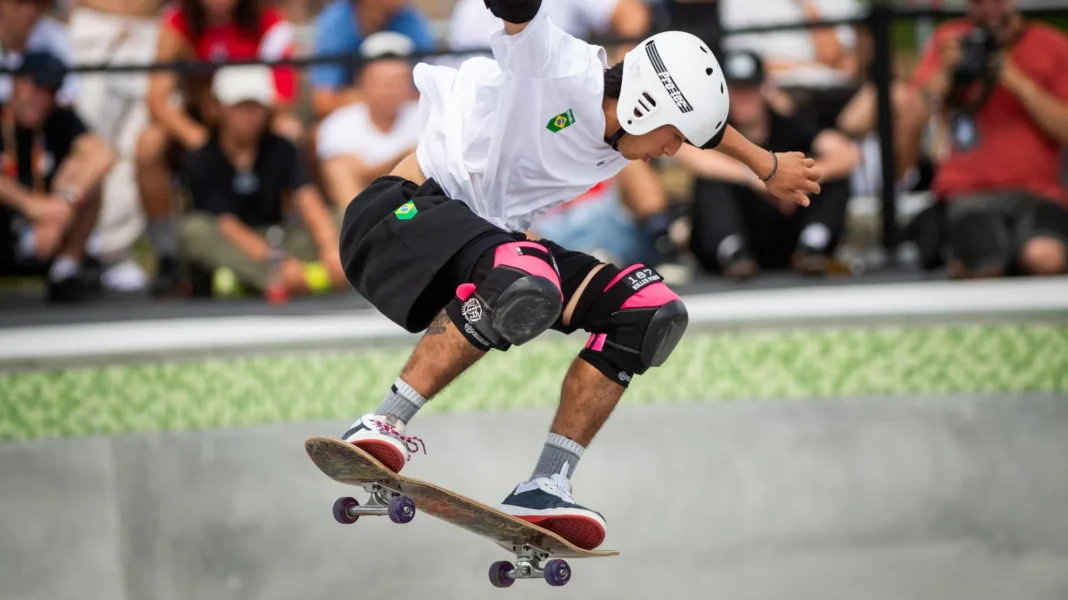Skateboarding is not just a sport, it’s a lifestyle. It’s a way to express creativity, push boundaries, and have fun. And with its growing popularity, it’s no surprise that skateboarding will be making its debut at the 2021 Summer Olympics in Tokyo, Japan. But what exactly are the specialties of skateboarding and how does a competition work? Let’s dive into the exciting world of skateboarding and its journey to the Olympics.
Skateboarding has its roots in the surfing culture of California in the 1950s. It started as a way for surfers to ride the waves when the ocean was flat, and has since evolved into a global phenomenon. The sport is constantly evolving and has developed various disciplines, or specialties, over the years. These include street, vert, park, downhill, and freestyle skating.
Street skating is perhaps the most recognizable discipline, with skaters performing tricks and stunts on various urban obstacles such as stairs, rails, and ledges. This discipline requires a high level of technical skill and creativity, as skaters use their surroundings to pull off impressive maneuvers.
Vert skating, on the other hand, takes place on a half-pipe structure, where skaters perform aerial tricks and maneuvers off the curved walls. This discipline requires a lot of speed, agility, and balance.
Park skating combines elements of both street and vert skating, with skaters performing tricks on a wide variety of ramps, bowls, and other obstacles in a skatepark. It requires a mix of technical skill, speed, and creativity to navigate the various elements of the park.
Downhill skating is all about speed and adrenaline. Skaters race down steep roads and courses, reaching high speeds while also navigating tight turns and obstacles.
Freestyle skating involves a combination of dancing, acrobatics, and technical tricks. It is a more artistic discipline and often includes elements of music and choreography.
But which of these specialties will be featured at the Olympics? Street and park skating will be the two disciplines represented at the 2021 Summer Olympics. This decision was made by the International Olympic Committee (IOC) in order to showcase the urban and modern aspect of skateboarding.
So how does a skateboarding competition work? In a skateboarding competition, skaters are given a set amount of time to perform their best tricks and stunts. A panel of judges then scores each skater based on difficulty, execution, and overall performance. The highest and lowest scores are dropped, and the remaining scores are averaged to give a final score.
In the street discipline, skaters are judged on their use of obstacles, difficulty and variety of tricks, and overall flow and style. In park skating, judges look for a mix of tricks, use of the entire course, and creativity in linking tricks together. The skater with the highest overall score wins the competition.
But it’s not just about individual performances. Skateboarding also has a strong sense of community and camaraderie, with skaters often cheering each other on and supporting one another. It’s a sport that values creativity and pushing oneself to the limits, rather than just winning.
And now, with skateboarding making its debut at the Olympics, athletes from all over the world will have the chance to showcase their skills and represent their countries on the global stage. This is a huge opportunity for the sport and its athletes, as it continues to break barriers and gain recognition.
In conclusion, skateboarding is a dynamic and exciting sport with a rich history and constantly evolving specialties. With its debut at the Olympics, it will continue to gain recognition and inspire a new generation of skaters. So let’s get ready to witness the best of the best in street and park skateboarding at the 2021 Summer Olympics in Tokyo. Skate on!

